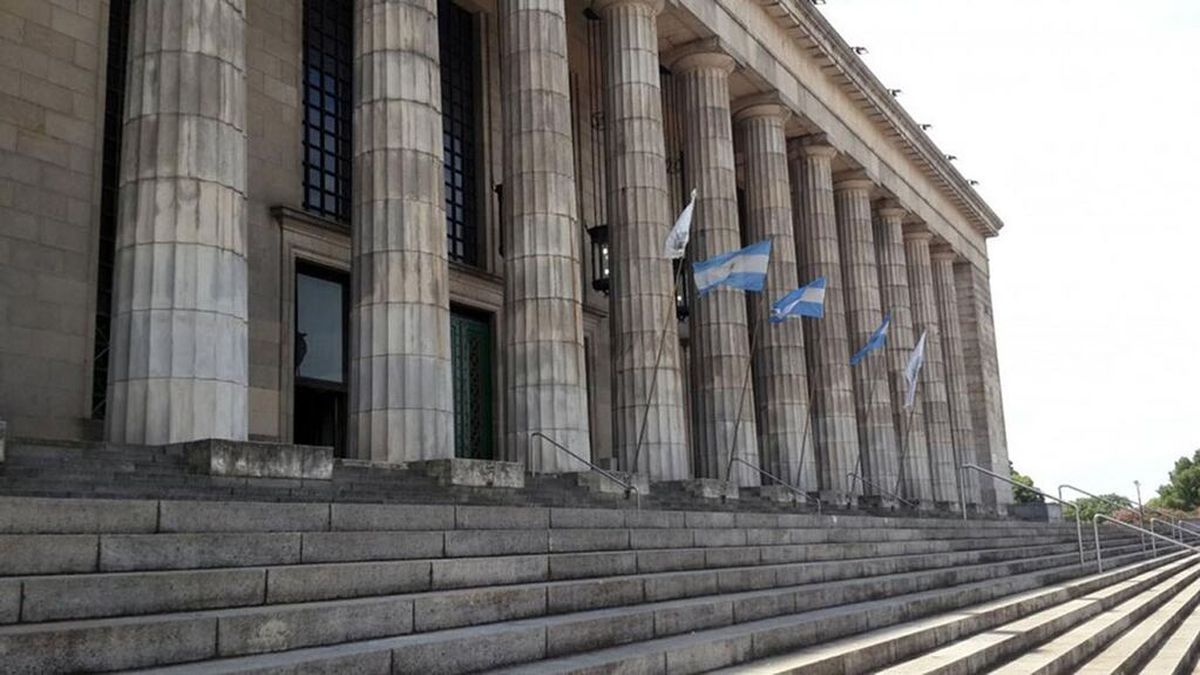This decree is the fourth of a regulatory package that the libertarian administration prepared to reform the reporting of university expenses. and social economy organizations. Last week, the Government made the use of different national public administration systems mandatory – BUY, CONTRACT and e- SIDIF – for purchases, contracting and transparency in the budget of national public universities.
The Government continues with the changes for national public universities
In detail, the new regulations modify article 14 of the “Regulation of the Contracting Regime of the National Administration” approved by Decree No. 1030 of September 15, 2016, its amendments and supplements by the following: “The procedure of Direct hiring will only be appropriate in the cases expressly provided for. in the sections of subsection d) of article 25 of Delegated Decree No. 1023/01 and its amending and complementary ones. Direct hiring may be abbreviated certification or simple adjudication“.
In this sense, the Decree details that the cHiring by abbreviated authorization will be those in which “there is more than one potential offeror with the capacity to satisfy the benefit and the factual situation falls within sections 1, 4, 5 – for urgent cases – of subsection d) of article 25 of the Delegated Decree No. 1023/01 and its amendments and supplements”.
On the other hand, it defines contracts by simple award as those in which “Whether for legal reasons, for certain factual circumstances, for reasons linked to the object of the contract or with the co-contractor, the Administration cannot contract except with a certain person or is empowered to choose a co-contractor of a public nature. and when the factual situation falls within sections 2, 3, 7, 8 and 9 of subsection d) of article 25 of Delegated Decree No. 1023/01 and its amendments and supplements.”
In addition, the Decree also modifies the article 44 referring to the publicity of the abbreviated certification and the simple adjudication. Thus, he established that the call to submit offers must be made through the following means:
- “Those that fall under sections 1 and 4: sending invitations to at least least 3 suppliers, with a minimum of 3 business days in advance of the opening date of the offers, or on the expiration date of the period established for the presentation of the offers inclusive, or for the withdrawal or purchase of the specifications inclusive, or for the presentation of samples inclusive, whichever comes first, when that date is prior to the date of opening of offers and dissemination on the official website”.
- “Those that fall under section 5 for emergency cases: sending invitations to at least 3 suppliers and disseminating them on the website of the National Contracting Office or on the website of the electronic contracting systemfrom the day on which the respective invitations are issued, in the manner and by the means established by the governing body.”
- “Those that fall within sections 2, 3, 7 and 9: dissemination on the website of the National Contracting Office or on the site of the electronic contracting system, from the day the quote request is made, in the manner and by the means established by the Governing Body“.
- “Those that fall within section 6 and the dissemination of the call are exempt from the obligation to disseminate at all stages of the procedure and those in sections 5—for emergency cases—and 8.”
Lastly, they were also repealed articles 23, 23 bis and 24 of the “Regulations of the National Administration Contracting Regime” approved by Decree No. 1030 of September 15, 2016, its amendments and supplements. The new measure bears the signature of the president Javier Mileithe Chief of Staff Guillermo Francos and the Minister of Human Capital Sandra Pettovello and came into force since its publication in the Official Gazette of the date.
The Government insists on controlling university budgets
The new provisions announced by the Government are added to those communicated last week regarding purchases, contracting and transparency in the budget in public universities. In addition, the possibility of making direct contracts with Universities or with natural or legal persons that are registered in the National Registry of Local Development and Social Economy Effectors
The initiative made it mandatory to use different national public administration systems for purchases and contracting. In detail, they are: BUY, CONTRACT.
Another of the systems that must be used, not only by universities but all the organizations is the e-SIDIF System: They must also use the Integrated Internet Financial Information System (e-SIDIF) for the administration of its resources, promoting digitalization, security and speed in processes.
On the other hand, the possibility of direct hires between public departments and universitiesunless they prove to be the only available provider.
When asked about the autonomy of universities after the announcements in the implementation of their budget, the Secretary of State Transformation and Public Function, Maximiliano Fariña, He assured: “Universities have total autonomy to spend their budget and that is respected and no one questions it.”
Maximiliano Fariña.jpeg
The Secretary of State Transformation and Public Function, Maximiliano Fariña, assured
Argentina.gob.ar
“The funds are from the Public Administration, which are applied within what is the Financial Administration Law, they are entities that are part of the Public Administration and, therefore, have to have the same transparency and control processes as any another entity,” emphasized the Deregulation official.
The Government insists that the measure does not affect university autonomythat there is no attempt to “interfere in the autonomous decisions of the universities, but to guarantee transparency in the use of public resources and improve accountability”.
In the event that the UBA or another University refuses, both Fariña explained that they are bound by the Public Administration Law. In detail, it is established by the Law 24,156 of Financial Administrationin its article 2 and in article 8 specifically includes universities, the official explained.
Source: Ambito
I am an author and journalist who has worked in the entertainment industry for over a decade. I currently work as a news editor at a major news website, and my focus is on covering the latest trends in entertainment. I also write occasional pieces for other outlets, and have authored two books about the entertainment industry.




